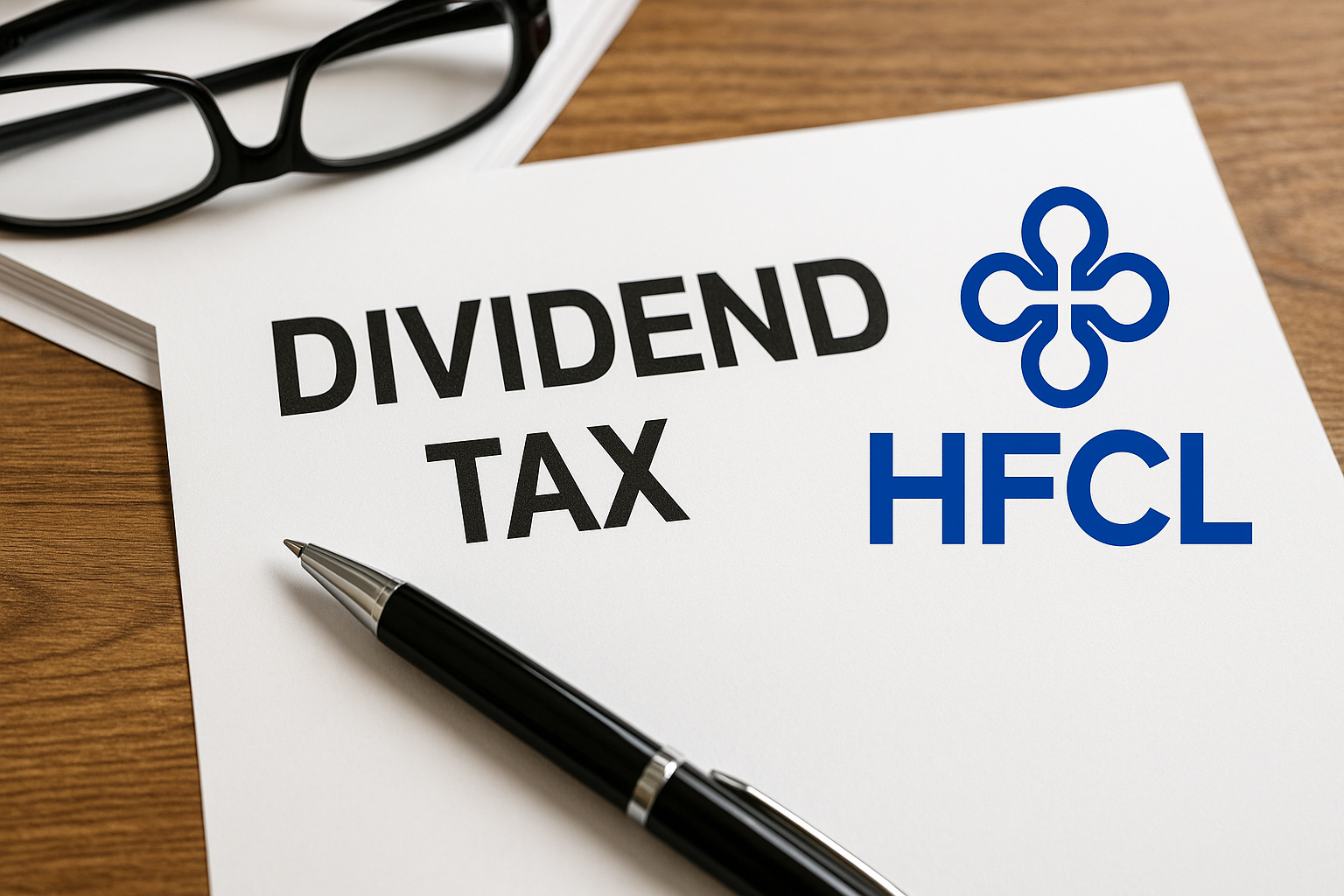HFCL Ltd informs shareholders about dividend tax rules and exemption process after the abolition of Dividend Distribution Tax. Learn how to claim exemptions.
HFCL Issues Intimation on Dividend Tax Deduction for Shareholders
June 19, 2025 | New Delhi –
HFCL Ltd (BSE: 500183), one of India’s major telecommunication infrastructure firms, has issued a formal notification to the shareholders regarding the taxations on dividend, in the context of the regulatory shift initiated by the Finance Act, 2020. The notice calls to mind the abolition of the Dividend Distribution Tax (DDT) and consequently the burden on shareholders to personally handle the taxation of dividends.
In accordance with the release by the company, shareholders whose email IDs have been registered with the depositories, HFCL, or its Registrar and Transfer Agent, have already been sent a detailed email explaining steps and documentation that should be pursued so as to avail tax exemption for dividend income.
Key Highlights of the Announcement:
- DDT Abolished: Effective April 1, 2020, companies are no longer required to pay DDT. Instead, dividends are now taxed in the hands of shareholders as per their income tax slab.
- Shareholder Responsibility: Tax deduction at source (TDS) is applicable on dividends. Shareholders are encouraged to furnish valid documentation to claim lower or zero tax deduction as permitted under the Income Tax Act.
- Important Communication Sent: HFCL has proactively shared detailed instructions with all eligible shareholders via registered emails. This includes procedures for submitting declaration forms like Form 15G/15H, PAN, and tax residency certificates (in case of NRIs or FPIs).
- Website Update: The communication, along with all necessary forms and FAQs, is also available on the company’s official website: www.hfcl.com
Understanding the Change
The Finance Act, 2020 was a significant change in the dividend taxation regime of India. As opposed to the previous system where the companies were required to pay DDT prior to distributing profits, the new system imposes the tax directly on investors. This is in line with international best practices and is also regarded as a step aimed at enhancing transparency and minimizing tax leakage.
Under this structure:
- Resident Individuals are subject to a 10% TDS if the dividend income exceeds ₹5,000 in a financial year, unless relevant exemption forms are submitted.
- Non-resident investors are subject to TDS as per applicable tax treaty rates, provided valid documentation is submitted in advance.
This puts the onus on shareholders to ensure timely submission of documentation to avoid higher tax deduction and reduce compliance risk.
How Shareholders Can Act
Shareholders should take the following steps to stay compliant and avoid unnecessary deductions:
- Check registered email for HFCL’s communication.
- Download relevant forms (Form 15G, 15H, TRC, etc.) from HFCL’s website or the email attachment.
- Submit the filled and signed forms to the designated portal or address mentioned in the communication before the record date.
- Ensure PAN is updated in the depository records to avoid 20% TDS.
HFCL’s Corporate Transparency
HFCL’s timely disclosure aligns with its policy of investor transparency and compliance with the regulations. Amidst the changing scenarios of dividend taxation, corporations like HFCL step in to fill awareness gaps for both retail and institutional investors.
For full details, shareholders can visit the BSE announcement page or HFCL’s Investor Relations section.




